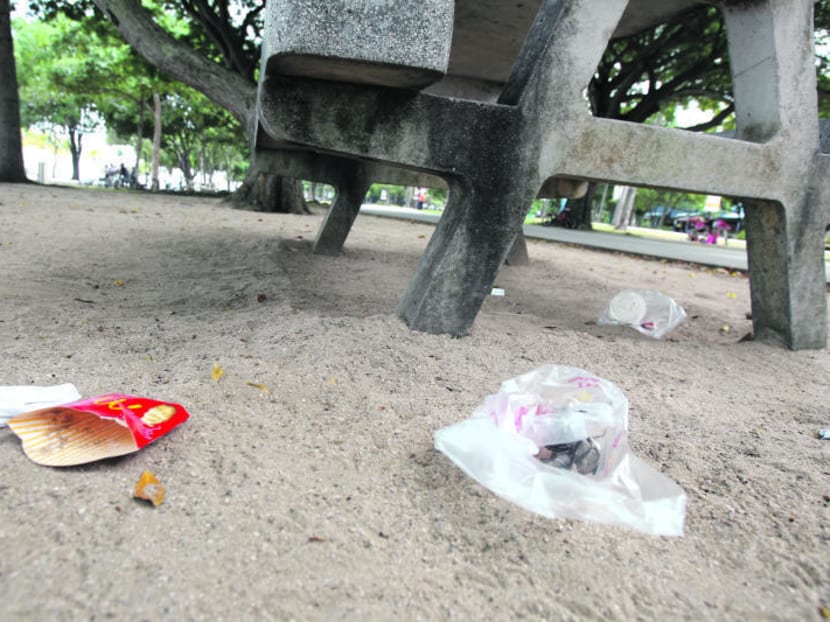Volunteers to get enforcement powers to deal with ‘green’ offences
SINGAPORE — The amended Bill to provide community volunteers with greater enforcement powers to deal with environmental offences was passed in Parliament on Tuesday (March 1) — but not before almost all six Members of Parliament (MPs) who spoke on the issue voiced their concerns about the implications this might bring.
SINGAPORE — The amended Bill to provide community volunteers with greater enforcement powers to deal with environmental offences was passed in Parliament on Tuesday (March 1) — but not before almost all six Members of Parliament (MPs) who spoke on the issue voiced their concerns about the implications this might bring.
Their concerns included the possible abuse of power by the volunteers, who will be appointed as the National Environment Agency’s (NEA) auxiliary officers, and how greater policing might create a culture of antagonism among fellow citizens.
During the debate on the Bill, Minister for the Environment and Water Resources Masagos Zulkifli noted that the state of public cleanliness in Singapore is a growing concern, and pointed to reports on the large amount of litter that was left behind after the countdown to 2016 at Marina Bay.
“Over the years, Singapore has earned a reputation as a clean city ... However, maintaining a clean Singapore cannot be left to cleaners alone,” said Mr Masagos.
Citing concerns about the need for a stringent selection criteria to choose the volunteers, Mr Gan Thiam Poh (Ang Mo Kio GRC) said he hopes that they will have the “right public spirit, good communications skills and care deeply about our environment”.
The Workers’ Party (WP) Pritam Singh (Aljunied GRC) warned against equipping volunteers with “broad and sweeping powers”, such as as forced entry, search-and-seizure and arrest, as this would go against the very concept of volunteerism.
In addition, allowing residents to be able to penalise their fellow constituents for alleged environmental infringements could result in “potential flashpoints” for neighbourly disputes, said WP’s Png Eng Huat (Hougang).
He added: “I am deeply concerned that this Bill has the potential to make such disputes end in violence as the summons, deserving or not, will no longer be seen as coming from a neutral party.”
This Bill would also create “confusion” by adding another layer of enforcement action undertaken by appointed volunteer auxiliary officers, in addition to the duties executed by officers of the NEA and town councils, for instance, Mr Png said.
Non-Constituency MP Dr Daniel Goh, also from the WP, added: “This looks like a slippery slope down the road to a police state, where neighbours prey on each other and erode the mutual trust that we have painstakingly built up over the decades.”
In response, Mr Masagos pointed out that Singapore already has volunteer police with enforcement powers, stressing that volunteers should uphold their duties responsibly.
Proper screening and interviews would be conducted to assess the individual’s maturity and interest towards environmental activities, he added.
All volunteers must be Singapore citizens or permanent residents and at least 18 years old.
After undergoing training, they will be deployed in groups in certain areas, where needed. At the start, the volunteers will be paired with NEA enforcement officers to learn how to carry out their duties properly.
The volunteers will also be protected under the Protection from Harassment Act from any indecent, threatening, abusive or insulting behaviour or words when executing their duties.
Mr Masagos stressed the need for people to cultivate a sense of responsibility towards the environment.
Agreeing, Mr Louis Ng (Nee Soon GRC) called for more in-depth educational projects, such as small community efforts targeted at hotspots for littering, beyond the usual national clean and green campaigns.
For instance, the NEA could do more research to identify the type of litter and demographic of litterbugs in a particular estate, before implementing the community projects.
Mr Masagos said: “We must ensure that the work (the volunteers) do is not the same work as our enforcement officers do, which is to enforce. They must be able to engage, to communicate and ensure that at the end of the day, they do this together so that everyone will love the environment deeply.”
Last year, the NEA issued more than 25,000 tickets to littering offenders, 32 per cent more than the previous year, and the highest in six years, said Mr Masagos in his speech.







